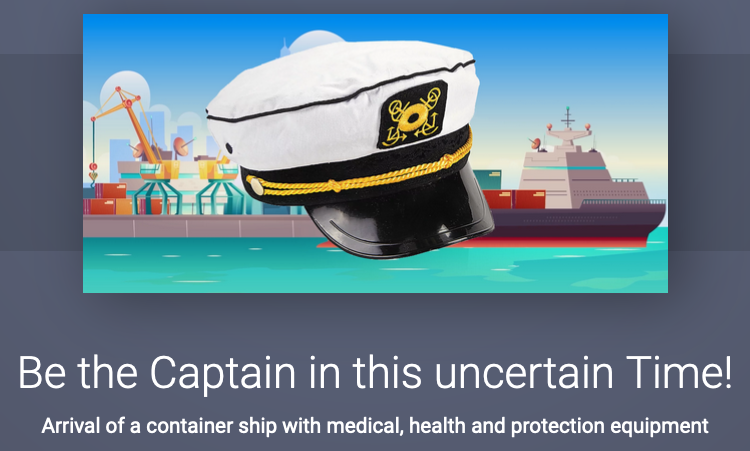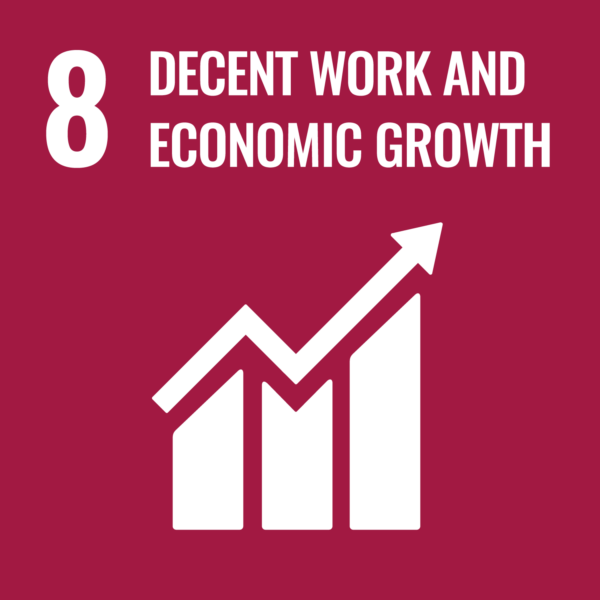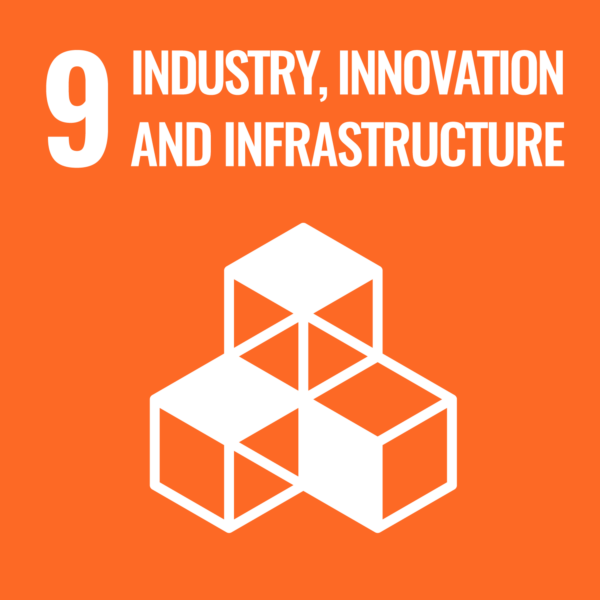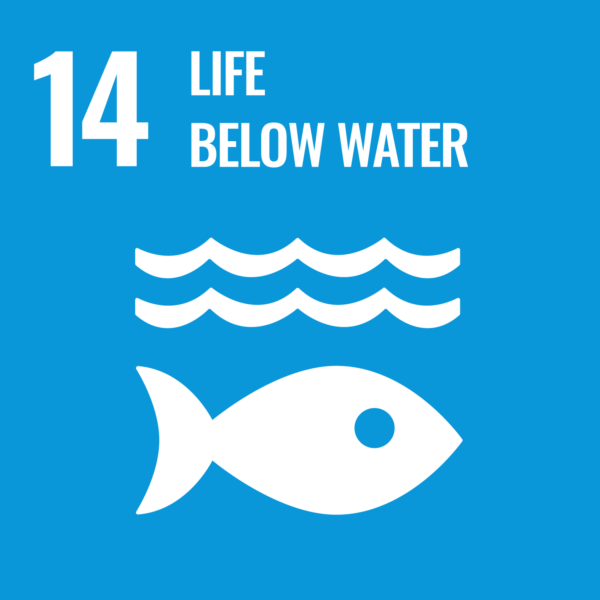TrainForTrade’s special course, Building Port Resilience Against Pandemics (BPR), has built essential skills for port community managers to help protect people and secure vital trade in ports in a pandemic situation. Its main objectives were to guarantee the health of port workers and users, to keep ports safe and operational during pandemics, and to facilitate the implementation of protocols to ensure health and safety.
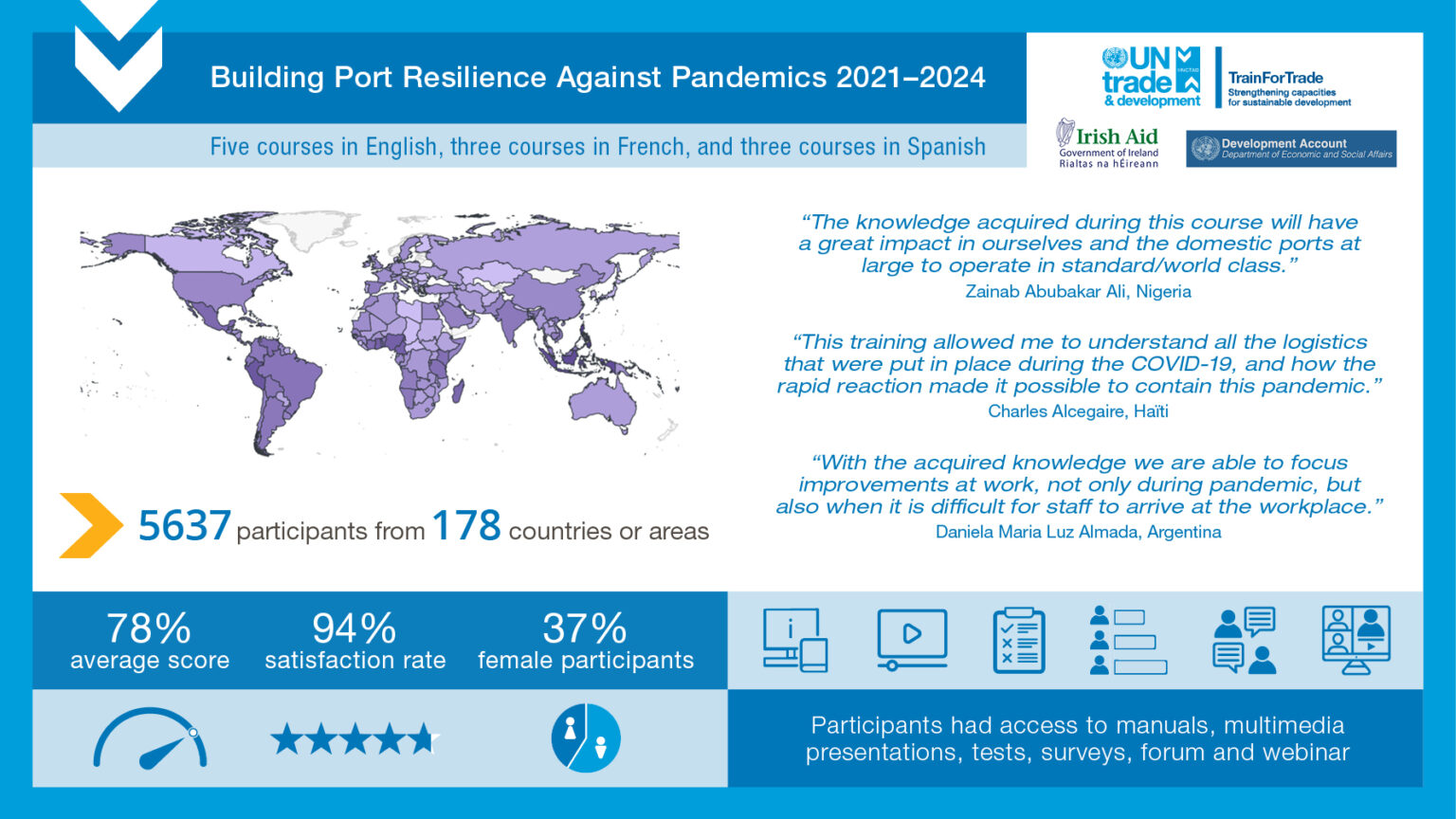
Do you want to play the simulation games?
BPR was the first TrainForTrade training where new gamification methods were implemented to develop and renew participants’ e-learning experience. Participants completed two online simulation exercises to consolidate the knowledge they acquired during the course. Exercises tested their decision-making skills in a role-play situation in a pandemic context.
Simulation exercise 2: Are you pandemic-ready?
(15 minutes)
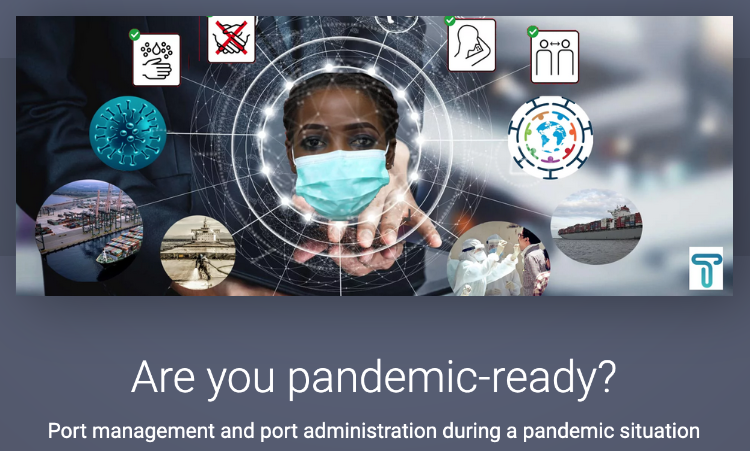
Course Description
Building Port Resilience Against Pandemics (BPR) was an asynchronous/self-paced moderated online course that was delivered over two weeks, and followed by two simulation exercises and a webinar (see agenda below for more details). Port experts engaged with participants online in the forum discussions for each of the course sections.
The online moderated course was structured in four sections, giving a precise and ordered view of the different aspects to be taken into account by a port or port organisation in a pandemic situation. It considered both a general vision and specific actions, the psychological and emotional part related to workers, the technological tools, and also considers actions related to ensuring the main activity of a port in the management of the flow of goods.
At the end of the course delivery, participants were invited to a 90-minute webinar to discuss issues, present best practices, and brainstorm on policy recommendations.
Course manual
Course videos
Building resilience in ports
During the first years of this decade, the coronavirus pandemic presented a global threat, leading to severe impacts on entire societies and nations. The maritime industry played an essential role in the response. About 80% of global trade is transported by commercial shipping. This includes most-needed items like vital medical supplies and equipment, as well as food, energy, raw materials, and manufactured goods and components. These are essential for meeting basic human needs, saving many jobs in manufacturing, supporting international trade, and ultimately keeping the global economy afloat. Because of this, world’s ports have to remain accessible for ships during a crisis, and crew changeovers must be permitted. Additionally, some extra measures should be taken to protect port community workers and to ensure port operations can continue in all situations.
UNCTAD Policy Brief on port resilience
Participants of the BPR course in 2021 were invited to suggest recommendations that may be utilized in the future to help draft policy advice related to a pandemic response in port communities. Participants in the three languages provided 300 suggested ideas for policy recommendations. The recommendations were shared on the course page, and participants were invited to vote for those they preferred most. The following policy recommendations were published in February 2022 in UNCTAD Policy Brief No. 93 on Emerging strategies for ports during the pandemic:
- Ports should use business continuity planning processes to develop action protocols for pandemic scenarios based on recommendations from national and regional authorities
- Contingency planning scenarios should be developed for the successful implementation of preventative actions and to identify appropriate responses to suspected infectious cases in a pandemic situation
- A communications strategy that is fit for purpose and aimed at all stakeholders, including employees, suppliers, customers, port users, government agencies and media, is essential
- Port managers should prioritize the education of port workers on how they can best maintain physical and mental wellbeing during a pandemic
- The provision of vaccination facilities, testing centres and contact tracing is a key feature and is needed to support the health and well-being of port workers
- The availability and management of appropriate technology is paramount in a pandemic situation and ports should ensure that technology, capacity and security measures are redesigned to support the high number of staff relying on telecommuting and digital communications for meetings
- Port managers should assign a high level of priority to implementing productivity tools for telecommuting staff and digitalizing processes, to enable business to continue uninterrupted while improving information technology security and resilience
- Designating transport and port workers as essential workers with the particular responsibility of maintaining services can help alleviate disruptions to supply chains, and ports should provide “green lanes” on existing road networks and allocate dedicated berths for vessels in ports for the rapid transport of emergency supplies
Best practices
(1) Under the International Labour Organization’s (ILO) Maritime Labour Convention of 2006, flag States must ensure that all seafarers on ships flying their flag are covered by adequate measures for the protection of their health and that they have access to prompt and adequate medical care whilst working onboard. The Convention also requires port States to ensure that seafarers on board ships in their territory who require immediate medical care are given access to medical facilities onshore.
It is crucial to keep the country’s borders open for all forms of freight transport, in particular ports considered to be essential national assets. Governments need to ensure that health measures are implemented in ways that minimize unnecessary interference with international traffic and trade; in particular, by respecting the requirements of “free pratique” for ships under the International Health Regulations (IHR).
The principles of avoiding unnecessary restrictions or delay in port entry for ships, persons and property on board are also embodied in articles I and V and section 6 of the annex of the Convention of the Facilitation of Maritime Traffic (FAL Convention). This is underscored by the International Labor Organisation (ILO) and the International Maritime Organisation (IMO).
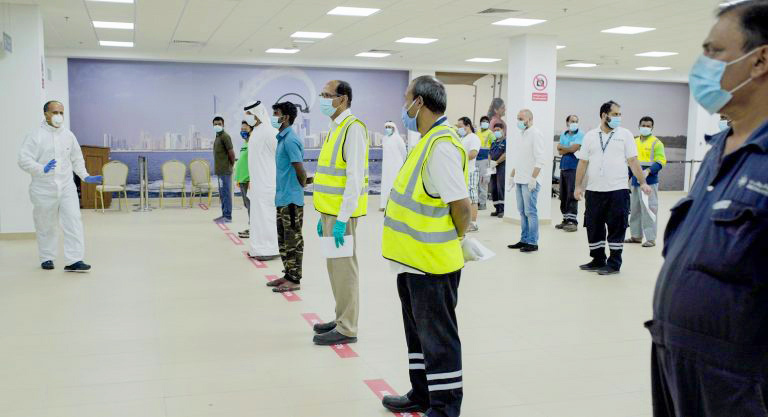
The way forward
As ports moved forward to win the battle against this pandemic, several milestones needed to be achieved:
- Boost Internet capabilities and accessibility inside and outside port areas for port workers and users alike. Connectivity, as mentioned by the World Bank Group, is a “public good” after all;
- Increase connectivity and data interoperability in Global Supply Chains by implementing Port Community Systems and taking advantage of Digital Ledger Technology the likes of Blockchain, as promoted by the World Economic Forum;
- Develop shorter and more diversified supply chains supported by advanced automation and labor-protective relocations in line with climate change objectives;
- Reinforce port regional cooperation to build more resilient trade nodes to brace for future COVID-19 pandemic-like shocks;
- Design new policies for resilient and inclusive ports to reach out to the most vulnerable people who are often dependent on the port communities’ economic and social fabric; and
- Engage in innovative training approaches and well-being at all staff levels, leveraging technology.
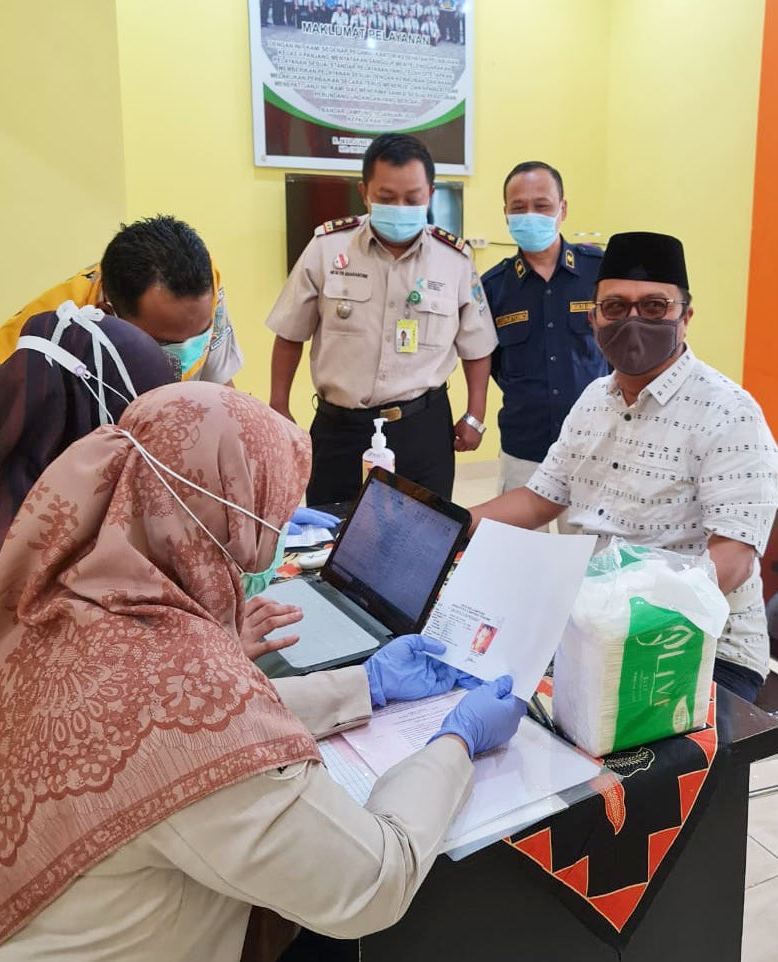
Crisis Protocol
Here is an example of a crisis protocol that can be used as a guide on actions that should be implemented in relation to strictly defined crisis levels.
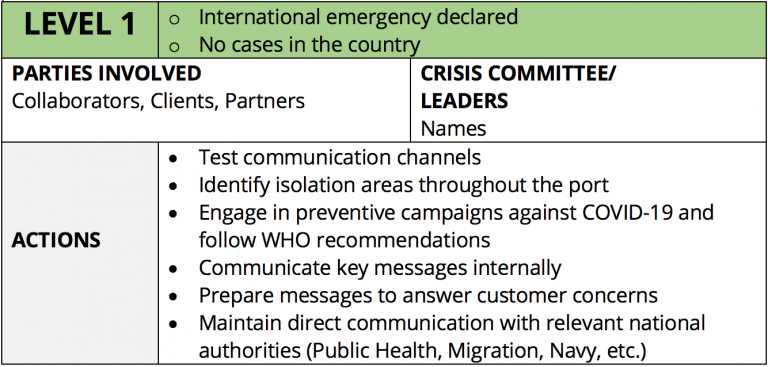
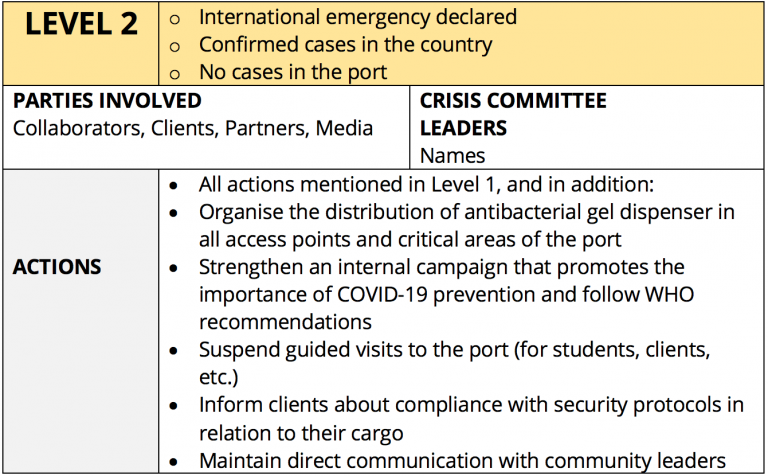
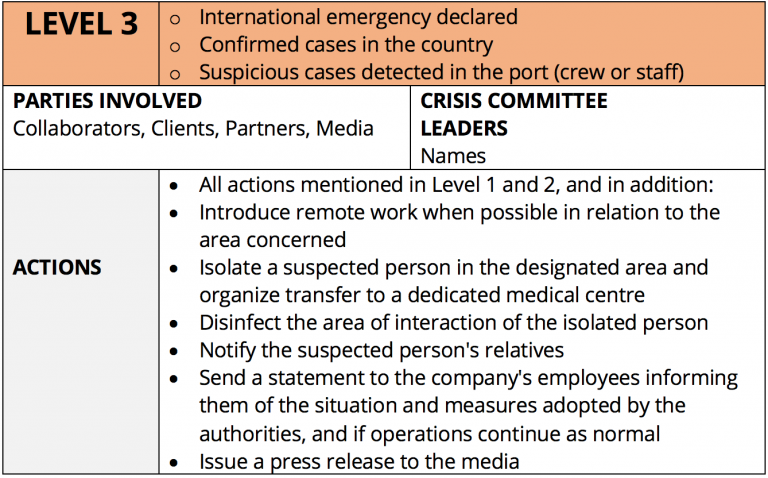
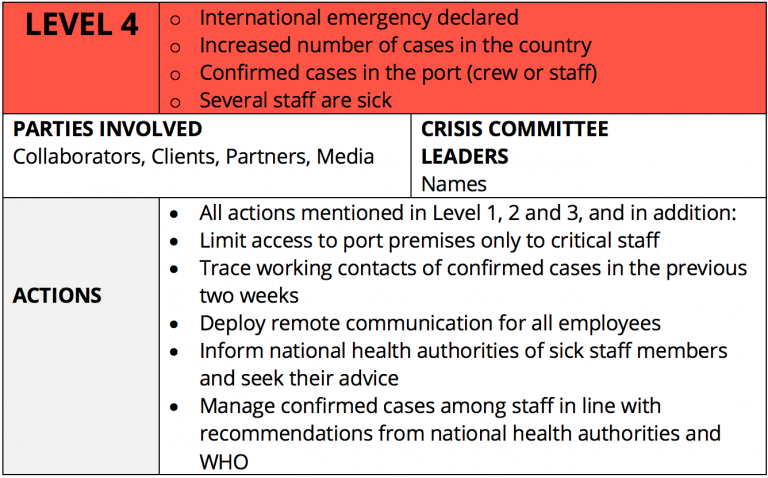
SDGs related to this project:
Support:
This project was financed by the United Nations Development Account Tranche 13 (COVID-19) and Irish Aid.





